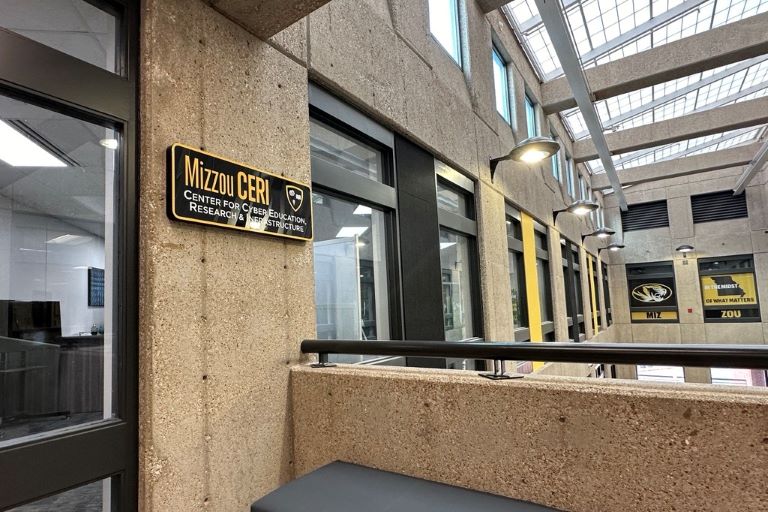October 27, 2024

A team led by Mizzou Engineering students at the Cyber Education, Research and Infrastructure Center (Mizzou CERI), in collaboration with Missouri S&T, received the prestigious Best Paper award at the GameSec 2024 Conference on Game Theory and AI for Security, held from October 16-18 in New York City. The winning paper, titled “On Countering Ransomware Attacks using Strategic Deception,” explores innovative solutions to combat ransomware—a growing threat to critical infrastructures like healthcare, finance and transportation.
The research introduces a step-by-step approach that uses strategic tricks to defend against ransomware attacks. By setting up decoys like fake files and systems designed to lure attackers, the model aims to confuse them and make their attacks harder to carry out.
“This work shows how important deception can be in cybersecurity, as it makes attacks more complicated to carry out, disincentivizes hackers and strengthens the protection of critical systems,” Roshan Neupane said. Neupane, one author of the study, is a Ph.D. Student in electrical engineering and computer science working under the supervision of Curators’ Distinguished Professor Prasad Calyam. Venkata Sriram Siddhardh (Sid) Nadendla, Assistant Professor of Computer Science at Missouri S&T, co-advised this study.
A key part of the study looked at real-world data from the healthcare sector. The team used a mathematical method called backward induction to find the best defense strategies for stopping attacks.
“Our healthcare case study results reveal that using deception technologies significantly benefits IT security teams,” Neupane said. “This approach shows promise in making hospital systems adopt proactive defenses against ransomware attacks, ensuring critical patient data and services are better protected.”
This study introduces a comprehensive model for understanding and countering ransomware threats. By applying game theory and deception technologies, the UM System team offers a new framework for improving the security of critical healthcare systems, paving the way for further advancements in protecting essential infrastructure.
The other students involved in the project include Ph.D. student Bishnu Bhusal, master’s students Kiran Neupane and Preyea Regmi, and NSF REU participants Tam and Lilliana Marrero. The team also includes Sayed M. Saghaian N. E., a postdoctoral researcher.
Learn more about electrical engineering and computer science at Mizzou!